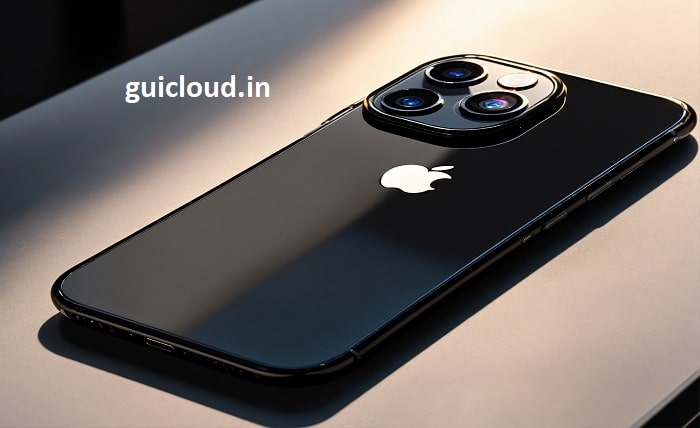iPhone Backups: How to Secure Your Data Without iCloud

Many iPhone users rely on iCloud for backing up their data, but what if you want to know how to backup your iPhone without iCloud? Whether due to privacy concerns, lack of storage space, or personal preference, there are several effective alternatives to secure your data.
Using iTunes to Backup Your iPhone
One of the most reliable methods to backup your iPhone without iCloud is using iTunes (or Finder on macOS Catalina and later). Here’s how you can do it:
- Connect your iPhone to your computer and open iTunes or Finder.
- Select your device and choose ‘Back Up Now’.
- Ensure you check ‘This Computer’ to save the backup locally. This method backs up almost all data on your phone, including your settings, messages, and apps.
Benefits of Using iTunes for Backup
Choosing iTunes for your backup provides several benefits:
- Complete backup of your data.
- Easy restoration process.
- No need for cloud storage, keeping your data physically secure.
Using Third-Party Software
If you prefer not to use iTunes, several third-party applications can help you backup your iPhone without iCloud. Apps like Dr.Fone, EaseUS MobiMover, and DearMob iPhone Manager offer robust solutions with additional features such as selective backups or backup encryption.
How to Use Third-Party Software
Using third-party software typically involves these steps:
- Download and install the application on your computer.
- Connect your iPhone via USB.
- Follow the app’s instructions to backup your device. These tools often provide more flexibility compared to iTunes, such as backing up specific data types.
External Storage Solutions
Another way to backup your iPhone without iCloud is using external storage devices. Products like the SanDisk iXpand drive are designed to work directly with your iPhone, allowing you to backup photos, videos, and contacts directly to the drive.
Advantages of External Storage
Utilizing external storage for your iPhone backup offers several advantages:
- Control over where your data is stored.
- Quick and easy access to your backups.
- No ongoing costs unlike cloud storage subscriptions.
Local Network Storage Options
For users with more technical know-how, setting up a local network-attached storage (NAS) system can be an excellent way to backup your iPhone without iCloud. NAS systems like Synology or QNAP provide apps that can directly backup photos and other data from your iPhone.
Discover trusted legal guidance with MyLawyer360, your one-stop solution for reliable, accessible, and affordable legal services. Whether you’re dealing with civil disputes, corporate compliance, family matters, or criminal defense, MyLawyer360 connects you with expert lawyers across India. Get case-specific advice, legal document assistance, and real-time updates with a user-friendly platform built to simplify the legal process. MyLawyer360 ensures transparency, confidentiality, and convenience at every step. Stay informed and in control of your legal journey with resources tailored to your needs. Experience stress-free legal support—only with MyLawyer360, where justice meets technology.
Maintaining Data Security
When backing up your iPhone without iCloud, it’s crucial to ensure your data remains secure. Here are some tips:
- Use encrypted external drives or secure NAS settings.
- Regularly update your backup software to protect against vulnerabilities.
- Ensure your backups are stored in a safe, physical location.
Restoring from a Backup
Restoring your iPhone from a backup without iCloud is straightforward with iTunes or third-party software. Simply connect your iPhone to the computer where your backup is stored, open iTunes or the respective application, and follow the prompts to restore your device.
Conclusion
Understanding how to backup your iPhone without iCloud gives you more control over your data and may enhance your privacy and security. Whether you choose to use iTunes, third-party software, or an external storage solution, each method offers distinct advantages and can be tailored to suit your needs.
FAQ
1. Why would someone choose to backup their iPhone without iCloud?
Some users prefer not to use iCloud for backups due to concerns about privacy, limited free storage, or the desire for a more hands-on approach to data management.
2. Are third-party iPhone backup tools safe to use?
While many third-party tools are safe, it’s important to choose reputable software with positive reviews and robust security features. Always download from the official website or a trusted source.
3. Can I access data from an iPhone backup made with iTunes?
Yes, you can access data from an iTunes backup, but you typically need to restore the entire backup to a device. Some third-party tools allow you to view and extract specific items from an iTunes backup.
4. How often should I backup my iPhone?
The frequency of backups should depend on how often you update the data on your device. Regularly backing up your iPhone—weekly or monthly—is a good practice, especially if you frequently add important data.
5. What should I do if my backup fails?
Ensure your software is up-to-date, your device has sufficient power, and your storage medium has enough space. If problems persist, consider using a different method or consulting with a professional.
Explore courselinkfree.us for free online courses and resources. Access a wide range of subjects to enhance your knowledge and skills with ease. Learn at your own pace anytime, anywhere.




